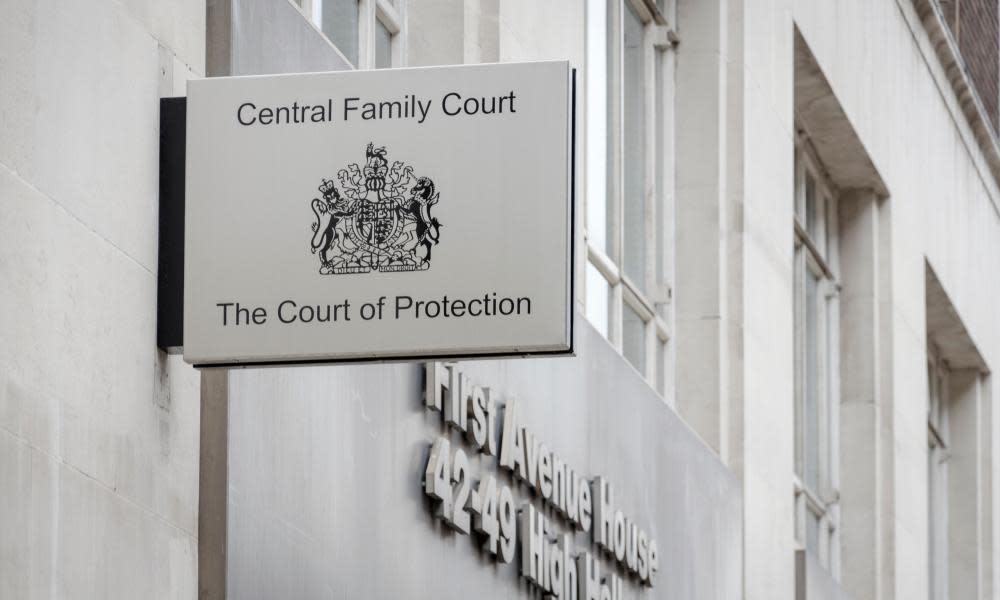MPs call for inquiry into use of ‘alienation’ claims in parental disputes

An urgent inquiry is needed into unregulated psychological experts being used in high-conflict disputes to diagnose whether one parent has attempted to “alienate” their child from the other, MPs have said.
Opening a debate on family court changes in England and Wales, the MP for Coventry North West, Taiwo Owatemi, said false claims of so-called parental alienation were the “most damning aspect of our family court system”.
There is no one definition of “parental alienation” but the concept is generally understood to mean when a child rejects or is hostile to a parent for no other reason than they have been psychologically manipulated by the other parent.
However, there is growing concern that, too often, false claims of parental alienation are being used as a legal tactic to silence a parent or undermine allegations of domestic abuse.
Owatemi told the debate: “The concept has little to no evidence to support it, but is nonetheless one accepted, resulting in children being placed with an abusive parent.
“Not only are utterly unqualified individuals being allowed to testify as supposed experts in these cases, Cafcass too has overseen the rise in such allegations.”
The Children and Family Court Advisory and Support Service (Cafcass), which was set up to be the voice of children in family court cases, is in urgent need of reform and is failing to properly safeguard young people, according to the MP.
She described the case of one constituent who had been granted sole custody of her son after escaping sexual and physical violence inflicted by her ex-husband – only to be accused of alienation when occasional contact with the father broke down.
“Thanks to the deeply embedded pro-contact culture of Cafcass … an eight-year-old boy is now in the clutches of a man who beat and sexually assaulted my constituent,” she told the debate. The mother no longer sees the boy and is “bereft”.
The Labour MP Jess Phillips told the debate those with “fancy lawyers” used the family court to argue that mothers are “mad, hysterical, bad” and “alienating”.
“We are in a situation where we have allowed parental alienation to get to the point that any woman who tries to protect her child from a violent and abusive partner because of the violence and abuse will be accused of parental alienation and that will work against her.
“I wish to point out, the people we are relying on to make the judgment of parental alienation might as well be my milkman. That is literally how qualified they are.”
Specialists are being paid huge amounts of taxpayers’ money who are not psychologists, she said. “They are … saying ‘yes we are seeing signs of parental alienation’ and there is no regulation.”
Last month, the president of the family division, Sir Andrew McFarlane, published a landmark judgment stating there was a “need for rigour” when instructing psychologists to give expert evidence but that tighter regulation was a matter for parliament.
The Labour MP Alex Cunningham told the debate that in cases of parental alienation “unregulated self-declared experts are invited to give evidence even though they have little to nothing in the way of formal qualifications and in fact may have a vested financial interest in diagnosing so-called alienation which they may then be paid to treat.”
He said Labour was fully supportive of an inquiry into the matter.
Responding to the points, the parliamentary under secretary of state for justice, Mike Freer, said the description of Cafcass as some “dystopian organisation getting everything wrong” was “simply unfair”.
He said the largest employer of qualified social workers in England supported 140,000 children each year and was doing “a lot of work for children in a difficult situation”.
Cafcass’s budget has been increased by more than £8.4m to a baseline of £140m, he said.
In terms of court experts, he said the judiciary could refuse a “so-called expert” but added that he would discuss the matter of regulation with colleagues in the Department of Health and Social Care.
Freer added that a big overhaul drive was under way to keep families out of the court process when it was not helpful to them.
Speaking afterwards to the Guardian, Owatemi said allegations of parental alienation seemed to be “skewed against women”.
“All the cases I’ve heard are of women losing their children and I don’t think the public is aware of what is going on,” she said.
One mother told her she had spent £400,000 on legal bills only to have her child removed because her wealthy ex-husband had been able to afford “more expensive lawyers”.
Owatemi said Cafcass was failing to safeguard children in these cases, adding: “It is aware of the situation and is failing to address it.”

 Yahoo News
Yahoo News 
